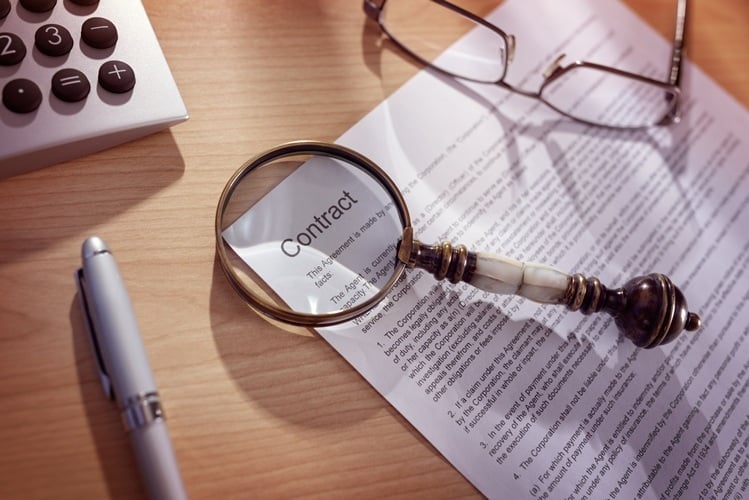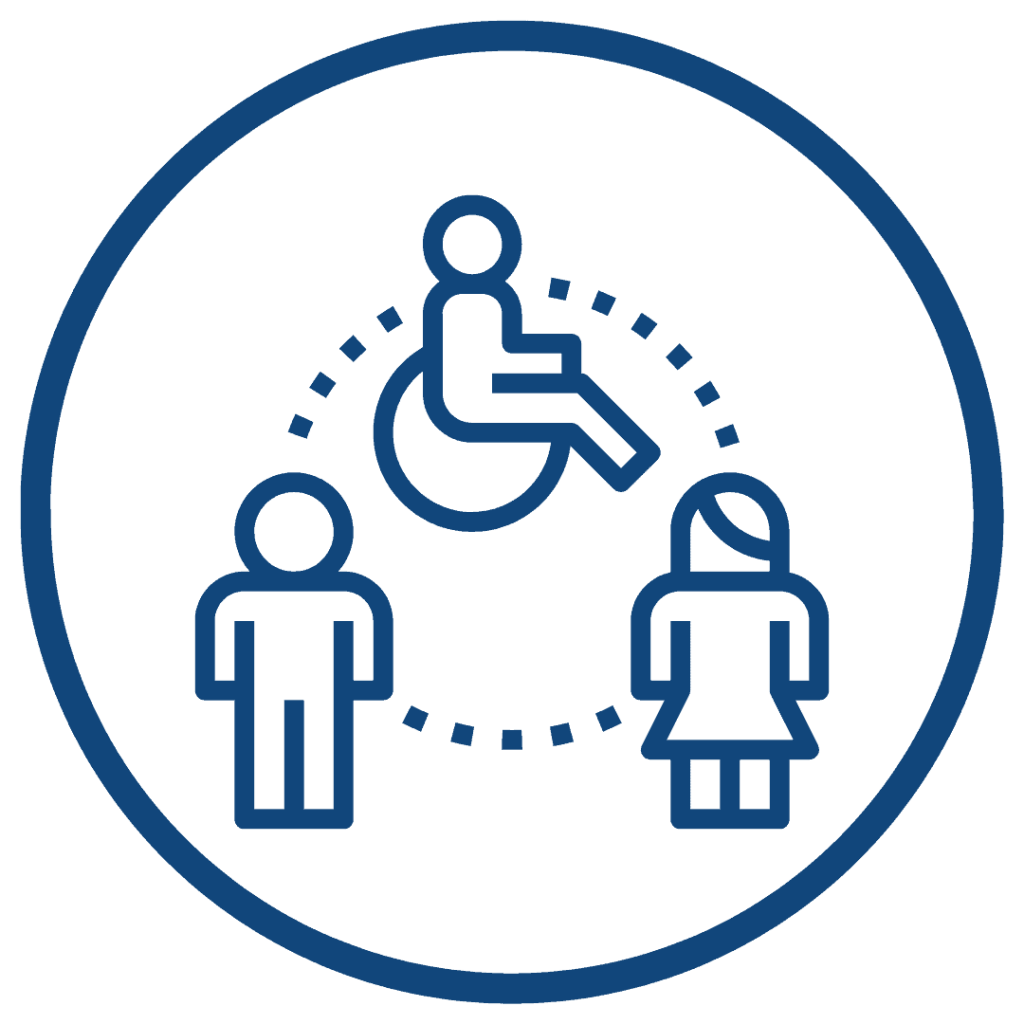Grievance and Disciplinary Procedures
When an employee’s conduct or job performance is a cause for concern, disciplinary action is often started. This procedure is usually described in the employee handbook or employment contract. It is a formal procedure that enables the employer to deal with these issues in a planned and equitable manner, ensuring the employer adheres to the standards established by the Advisory, Conciliation and Arbitration Service (ACAS).
Get a FREE Consultation Today
For help and expert HR and employment law advice book a free consultation with one of our consultants today.








What happens during a Disciplinary Procedure?
A manager or supervisor usually starts the process off informally by discussing the problem with the individual in question. If the issue doesn’t get resolved, it moves on to a formal stage, which includes a formal disciplinary hearing or meeting. The employee must be given written notice of the suspected wrongdoing or poor performance prior to this meeting so they have time to prepare their response. The employee has a chance to address the accusations and offer an explanation during the meeting. Discipline-related actions, including warnings, training, reassignment, suspension, or even dismissal, may be implemented in response to the results of this hearing. Throughout this entire process, it’s crucial that employers respect the employee’s right to be accompanied at disciplinary hearings by a fellow worker or a trade union representative. The process is carefully managed to ensure it is fair, consistent, and compliant with the UK employment law, mitigating potential legal risks.
We provide straightforward legal and HR advice so you may make the best choice for you and your circumstances.
Disciplinary Procedures
When an employer needs to address the performance or inappropriate behaviour of an employee, a disciplinary procedure is often used. The disciplinary process must be fair, transparent, and follow a predetermined format, such as:
- Detecting the issue: If a coworker is unhappy with an employee’s performance or behaviour, they must be able to describe it in detail.
- Investigation: A thorough inquiry should be conducted to gather the relevant information.
- Disciplinary hearing: Employee should be invited to a formal disciplinary hearing to talk about the situation. They have the right to be accompanied by a coworker or a representative from a union.
- Decision: The employer must decide on disciplinary action and notify the employee after carefully assessing all the information at hand. The employee may appeal the decision.


What are the steps of a Grievance Procedure?
On the other side, when workers have grievances or problems with their jobs or workplace, they initiate a grievance procedure. The grievance procedure often includes:
- Bringing a complaint: If an employee has a problem or issue, they should communicate it to the employer in writing or verbally.
- Meeting: The manager should arrange a meeting to go over the grievance process. A coworker or union representative may accompany the employee to this meeting.
- Investigation: To ascertain the legitimacy of the grievance, the manager may need to launch an inquiry.
- Conclusion: The employer should be informed of the conclusion and any necessary actions by management. The employee has the right to appeal if they are unhappy with the result.
Our guide to dealing with disciplinary and grievance with an employee
For any employer, handling disciplinary and grievance matters can be difficult. However, an organised strategy can help in resolving issues quickly and preserving a productive workplace. Our advice:
- 1. Having Clear Policies: Ensure that your company’s disciplinary and grievance procedures are outlined in clear, written policies. All staff members should have simple access to them. These policies should specify how complaints will be handled, how misconduct and poor performance will be dealt with, and what actions will be taken in each situation.
- 2. Encourage open communication: So that workers feel comfortable reporting issues. If a problem emerges, attempt to solve it amicably first. Many minor grievances can be swiftly and covertly handled through talk.
- 3. Launch an official investigation: If an issue persists or becomes serious. assemble all required information, and record every step of the investigation.
- 4. Formal Procedure: If the issue can’t be resolved informally, move on to the formal stages of your disciplinary or grievance procedure. This often involves a formal meeting or hearing. Provide the employee with sufficient notice of this meeting and a clear explanation of the issues in question.
- 5. Fair Hearing: Permit the employee to present their side of the story during the formal meeting. They should have the option to go with a colleague or a union representative.
- 6. Decision-Making: Based on the evidence and the employee’s reaction, choose a suitable course of action after the hearing. The response can be anything from inaction, a written warning, to, in extreme situations, dismissal. The employee should receive written notice of the decision.
- 7. Appeal: If the worker is not happy with the judgment, let them appeal it.
- 8. Documentation: Keep thorough records of each discipline and complaint case. This includes any meetings held, decisions made, and actions done, as well as documentation of the problem and the measures taken to address it. In the event of litigation, this will safeguard your company.
- 9. Consistency: Be consistent in how you handle disciplinary and grievance cases. Treating similar situations differently could lead to claims of unfair treatment or discrimination.
- 10. Legal Advice: When in doubt, consult a lawyer. It’s important to make sure you are treating matters in accordance with current rules and regulations because employment law might be complicated.
Keep in mind that settling disciplinary and grievance concerns involves more than just finding a solution to the current situation. Additionally, it’s about building a healthy, effective workplace and upholding mutual respect and trust with all of your employees.

What happens if a grievance cannot be resolved?
There are a number of possible following measures to take into consideration if a complaint cannot be handled within the business during the initial phases of the grievance procedure.
First, an organisation could use a neutral third party for conciliation or mediation. This impartial party can assist in facilitating negotiations between the parties and working towards a resolution. When a dispute is the result of a breakdown in interpersonal connections, mediation can be very beneficial because it promotes dialogue and understanding.
The employee may decide to take their case to an employment tribunal if mediation is unsuccessful or inappropriate in the circumstances, the grievance is extremely serious, or it involves claimed violations of employment rights. In the UK, the complainant usually needs to notify the Advisory, Conciliation and Arbitration Service (ACAS) before making an application to an employment tribunal. ACAS will provide an Early Conciliation service as a final effort to settle the dispute without going to court.
The Employment Tribunal will hear testimony from the employee and employer if the grievance issue is brought before it before rendering a decision. . It’s crucial to keep in mind that the Tribunal can grant compensation if it rules in the employee’s favour and that its judgment is legally binding.
Unresolved complaints can, in any case, negatively affect an organisation’s productivity, retention, and staff morale. Because of this, it is in the organisations best advantage to take all reasonable measures to settle complaints at the earliest, most informal stage feasible.
Frequently Asked Questions
What is the purpose of disciplinary procedures in the workplace?
Disciplinary procedures are established to address and resolve issues of employee misconduct or poor performance in a fair and consistent manner. They aim to provide a framework for addressing problems and helping employees improve.
What is a grievance procedure, and when should I use it?
A grievance procedure is a formal process for employees to raise concerns, complaints, or disputes related to their employment. It should be used when an employee has an issue that cannot be resolved informally with their manager or supervisor.
Are there any legal requirements for implementing disciplinary and grievance procedures?
In many countries, there are legal requirements or guidelines for employers to have fair and transparent disciplinary and grievance procedures in place. It’s important to ensure compliance with relevant labour laws.
How should I initiate a disciplinary process for an employee?
Disciplinary procedures typically start with a formal meeting or discussion with the employee to inform them of the issue, provide evidence, and allow them to respond. The procedure should be clearly outlined in your company’s policy.
Can an employee appeal a disciplinary decision?
Yes, employees usually have the right to appeal a disciplinary decision if they believe it is unfair or unjust. Employers should provide a clear process for lodging an appeal and have a different manager review the case.
What should be included in a grievance policy?
A grievance policy should outline how employees can raise grievances, the steps involved, who to contact, and the expected timeline for resolution. It should also specify confidentiality and non-retaliation provisions.
How can employers ensure a fair and unbiased disciplinary process?
To ensure fairness, employers should follow established procedures consistently, provide clear documentation, allow employees to have a representative present and base decisions on facts and evidence rather than personal bias.
Upcoming Events & HR Training for Employers
As experienced HR Advisors and Employment Law solicitors we see first-hand how HR issues can affect both the employee and the employer.
Our training is very well received by attendees and is delivered by lawyers and HR advisors, with combined knowledge and expertise, in a practical way which works for your business.
Bhayani Law clients and charities get discounts on our training and some of our training is available at discounted rates with public funding between 40-100%.
Our events allow you to meet other businesses and build your connections, so do book if you want to come along.

Women in Business: How to Network
For some of you, it’s effortless. You walk into a room, you engage in friendly conversation and maybe have some...
- 6pm - 8.30pm
- June 26

Equality, Diversity & Unconscious Bias Half Day Training Course
The workshop is designed to be an interactive and informative session to equip all employees from junior members of staff,...
- 10:00am-1:30pm
- November 14

The HR Exchange Meet-up: Making emotional conversations easier in the workplace
Welcome to The HR Exchange. Founded in 2012 by Jay Bhayani to offer businesses and charities the opportunity to gain...
- 5:30pm-7:30pm
- March 19

International Women’s Day: #InspireInclusion
You are invited to join us to celebrate International Women’s Day 2024 with us on March 6 under the empowering...
- 9am - 11:30am
- March 6

Women in Business: How to Network
For some of you, it’s effortless. You walk into a room, you engage in friendly conversation and maybe have some...
- 6pm - 8.30pm
- June 26

Equality, Diversity & Unconscious Bias Half Day Training Course
The workshop is designed to be an interactive and informative session to equip all employees from junior members of staff,...
- 10:00am-1:30pm
- November 14

The HR Exchange Meet-up: Making emotional conversations easier in the workplace
Welcome to The HR Exchange. Founded in 2012 by Jay Bhayani to offer businesses and charities the opportunity to gain...
- 5:30pm-7:30pm
- March 19

International Women’s Day: #InspireInclusion
You are invited to join us to celebrate International Women’s Day 2024 with us on March 6 under the empowering...
- 9am - 11:30am
- March 6
Latest Customer Reviews

“Confusion into clarity”
“I am fairly sure that without Jay’s support, I would not have been able to see my way clearly out of the situation I was placed in by my former employer. She turned confusion into clarity, fear into power and, most importantly of all, massive stress into progress which was a relief beyond words.”
“A real relief”
“Jay and her team were able to explain to me stage-by-stage exactly what was happening. I was really supported throughout these hard times. My anxiety was alleviated with the reassurance and support given by the Bhayani Law team.”
“Proactive. Interactive. Supportive.”
“Proactive, interactive and supportive. Easy to communicate and to set the required legal advice and guidance. Very professional and transparent.”
“Very helpful and done in a friendly manner”
“I had a difficult employment dispute which had to be dealt with quickly. I spoke with Lindsey and within 5 hours we had a result. Her advice was very helpful and done in a friendly manner. Thank you for such a very fast and professional service.”
“Ultimate Professionals”
“A great service, can’t recommend highly enough. Ultimate professionals, thank you Jay and your team.”
“I received excellent service”
“I received excellent service, and Jay was understanding of my situation. She explained my options clearly, and supported me in my decision. Thank you.”

